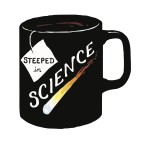This is an engaging memoir of a woman reflecting on and researching the cancer of those she loves. It is primarily about her relationship with her brother-in-law, who gets a melanoma diagnosis, but is not at a stage that traditional medicine can do anything for. So he looks at alternative medicine, and she, the science writer, submerges herself in research to try to make sense of things. She has a very good balance of the personal patient’s feelings and the scientific research. And on the whole, this book is part of a growing body of literature that tells its readers that reality is not a simple thing, that science does not offer us certainty, and that we have a responsibility to learn as much as possible, do the best we can, and above all, treat each other with kindness rather than judgement.
I was somewhat unaware of some of the central problem, as Mitchell sees it, that when a cancer diagnosis is obtained, that we do a lot of blaming. I know I have a tendency to do that when a pack-a-day smoker gets lung cancer, or maybe, just maybe, someone who roasts their skin to a deep tan purposefully gets skin cancer, but I was shocked by some of the things shared by cancer patients that people had told them. That some personality flaw led to cancer. Or that it is lifestyle — didn’t eat enough organic broccoli. That much was troubling to me. Mitchell also shared some very helpful data, painting a picture of cancer’s presence in our society, as a disease mostly of the aged, less common in younger patients than it used to be and certainly less deadly. She also made the strong point that only 30% of cancers are considered preventable at all (most of that is smoking), so 70% of them aren’t due to any preventable cause. They’re no one’s fault. We can stop looking for someone to blame.
I found her analysis and description of all the alternative medicine advice that came her way (via her brother-in-law) enlightening. I’ve heard it said that being pregnant often carries the dubious benefit of having strangers walk up to you and give you advice for all kinds of things. Evidently having cancer is the same kind of thing, except you have the option of keeping the diagnosis a secret. But man, everybody seems to have an opinion on what you should do. How her brother-in-law and his family (including the author) handled this storm of advice and uncertainty was very interesting, and there’s some really good science built into it.
There’s a lot we still don’t know about how our bodies work, and especially how they respond to cancer and its treatments. Mitchell raises more questions than she answers, which is inevitable and responsible on her part. She also spends some time grappling with uncertainty. I love her honesty when she admits that she was far more comfortable with that uncertainty when it was others, and then her brother-in-law who was diagnosed than she was when her daughter was diagnosed with cancer. All of a sudden all her cerebral probabilities and comfort with randomness and lack of answers were out the window. It’s a beautiful piece of personal writing and a testament that dealing with uncertainty is and always will be hard for us humans.
I highly recommend this book because it’s one of those that would make the world a better place if we all understood what’s in here. That’s saying a lot. It’s part of a bigger picture that I hope we as a species will grow into… the recognition of complexity and randomness, and the deep reflection that is required to sort out what we can do and should do from other possibilities. The fact that we live in a world of probabilities but not certainties applies to everything from quantum mechanical interactions between particles (and, incidentally, the kinds of processes that may turn a cell cancerous) to our career paths. I commend Mitchell for an honest attempt to wrestle with this reality. Or, as she would no doubt prefer, to dance with this reality.
I got a free copy of this book from Net Galley.



Leave a Comment
You must be logged in to post a comment.